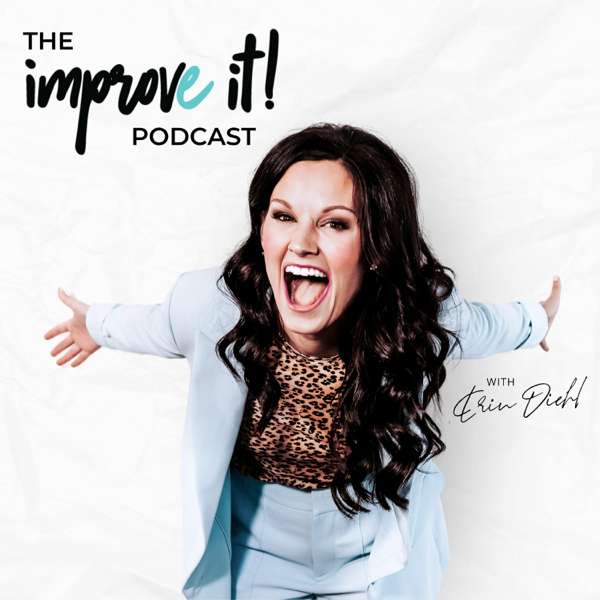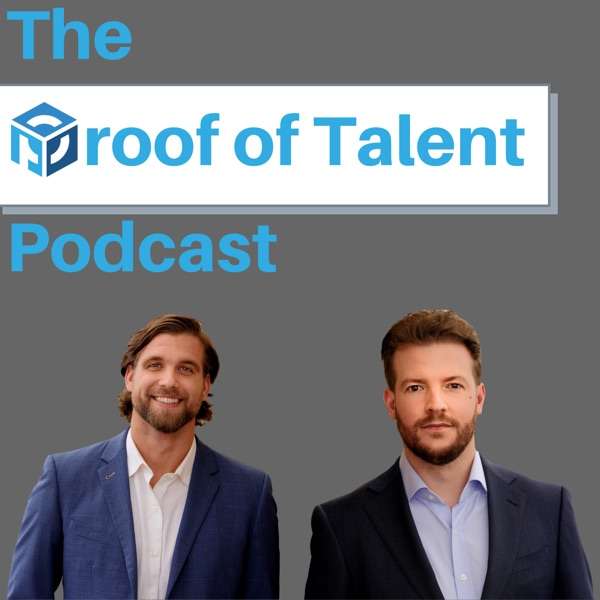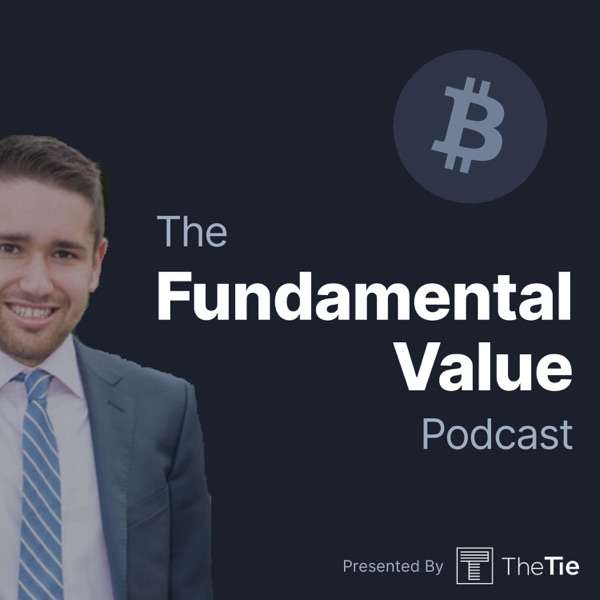US Treasury Secretary Janet Yellen discusses the state of the US economy, additional sanctions on Hamas, and China's relationship with the US. She speaks to Bloomberg’s Peggy Collins in Washington DC.
Full Transcript:
US Treasury Secretary Jenny Allen. She joins Bloomberg News in Washington, d C. For a conversation around the economy, moderated by our Washington Bureau Chief Peggy Collins. I think we'll start off with the economic data that came out this morning, third quarter GDP showing a robust four point nine percent growth rate a pace in the third quarter. When you look at those figures, do you think we've likely avoided a recession or do you think it's too good to be true because inflation is still so high. Well, it's a good, strong number, and it shows an economy that's doing very well. Let's remember it is just one quarter's number, and I'm not expecting a growth at that pace to continue. But we do have good, solid growth. You know, probably the year will come in close to two and a half. I wouldn't be surprised if we see that we have solid job creation, a low unemployment rate, increased engagement in the labor force. Labor force participation is strong, more people want to work, and inflation's coming down, and you don't really see any sign of recession here. I have to say I've been saying for a long time that I believed there was a path to bring inflation down in the context of a strong labor market. Frankly, it's only it's about a year ago since I believe a Bloomberg model predicted that by October of twenty twenty three. Now, namely that you saw at the odds of recession at one hundred percent, I don't think we have that. You know, what we have looks like is soft landing with very good outcomes through the US economy. So I think there's a lot to be pleased about. And you see good strong consumers spending, consumers still have substantial wealth, it's substantially since the pandemic. I think it's supporting good, strong spending and the economy is doing well, and I think US growth is making a contribution to stronger global outcomes as well. So you just pointed to a number of things that are positive about the US economy. But we've done a lot of reporting in recent months that here at Bloomberg, who sent reporters out all across the country, and what we're hearing from people on the ground is that when you ask them about their personal finances, they feel pretty good. For a lot of the reasons you just mentioned the labor market, their ability as consumers to spend, But when you ask them about the direction of the US economy, the sentiment is much more downbeat. So what can you do to close the gap on the positive side in terms of how people feel about the US economy, especially as we head into an election year. So I think Ricans have been through a lot with the pandemic and the lockdown for almost two years than a period of high inflation. And as you say, they do seem to feel good about their own personal finances. Surveys of job satisfaction suggests people feel good about their work too. We've rarely seen higher numbers on job satisfaction, but they seem very worried about the economy and that things are not doing well. You know, the US economy has suffered from structural problems from a very long time. For a very long time, A significant share of the population, particularly those who haven't had a college education, who have really not seen meaningful growth in their real income and have seen a decline in job opportunities over really approaching fifty years. And I think what Americans need to know is that the Biden Harris administration is really decisively changing that we are investing in America. We have passed three a trifecta of legislation that people will increasingly see who've been suffering from a shortage of job opportunities. I think they're really going to see things change. First of all, we're spending an enormous amount to repair America's infrastructure, and increasingly people are going to see their roads that they get hung up on every day. It's hard to commute with potholes everywhere. It's going to be fixed, Bridges are going to be improved. Reports, people are going to within the next several years, virtually every American will have access to good, good internet, so improving digital economy. And we've seen an enormous set of investments announced in response, largely to the Chips and Semiconductors Act and to the Inflation Reduction Act in clean energy, and jobs are being created. What we see in this past year is that a disproportionate share of the jobs that are being created are in communities that have had less economic opportunity, communities with below average incomes and with a below average share of people who have a college education. So this means that uppportunity will increasingly come to people who really haven't in a sense, gotten a fair shake over the last fifty years, as they've seen jobs disappear. And you know, President Biden and Vice President Harris and I really believe that you ought to have access to a good job, even if you don't have a college education. And increasingly I think people will see that good opportunities are being created. Certainly, the President is trying to go out and explain to people what this longer term, medium term agenda. He would say, it's a matter of growing the economy from the bottom up, in the middle out. What we've had is too much of trying to grow the economy to trickle down from the going with gains going to the top with a hope that it will trickle down. And I think we beginning to see the fruits of these investments begin beginning to pay off. So I think the Americans have a lot to look forward to and beginning to see this in their daily laws. So we were just talking about americans perception of the economy. But another thing we follow closely here at Bloomberg globally is investors perception of the economy. So I want to ask you a little bit about the rise in yields that we've seen. We've seen yields surging over the last few weeks. The ten year treasury rose above five percent earlier this week. What's your view on what is driving that surgeon yields and how much of it is connected to investors' concerns about the US deficit. Well, I don't think much of it is connected to that. This is a global phenomenon in advanced countries. We're seeing yields go up in most advanced countries of the world, and largely I think it's a reflection of the resilience that people are seeing in the US economy. That we're not having a recession, that consumer spending and demand continue to be strong. The economy is continuing continuing to show tremendous robustness, and that suggests that interest rates are likely to stay higher for longer, and so part of the increase in yields I think is simply a reflection of the strength of the economy, the notion that interest rates will be higher for longer. Now, whether or not that's really true, if we look at five or ten years, what are interest rates likely to do? Honestly, for a very long time we've felt that interest rates over decades had been coming down real interest rates, and that there were deep structural reasons for that, in part relating to demographics and those underlying trends. They're still there, they're still in force. So I think it's perfectly possible that we will see longer term yields come down, but nobody really knows for sure. But I see the higher yields as certainly importantly a reflection for stronger economy. So when you think about the deficit, I think one of your preferred metrics for assessing US fiscal stability is to look at the net interest outlay as adjusted test relation. And right now, I think you've said that those levels seem good to you, but there are in real terms, it's about one percent a little bit under that. So that's helpful in terms of kind of the next figure I was going to mention is several economists out there are forecasting that that figure by twenty thirty could be well north of two percent. So at that level, would you be alarmed? In terms of the sustain fhysical sustainability. Let me just say, fiscal sustainability is really critical, and President Biden is committed to putting forward a fiscal plan that shows fiscal sustainability and uncertainty about interest rates. Interest rates do influence what the path of that real net interest is going to be. There's a bigger challenge if the interest rate path stays higher. President Biden has already supported deficit reduction measures in the Pact, raising the dead ceiling and other legislation. In the Inflation Reduction Act, there's a trillion dollars of deficit reduction, and he proposed a budget that both invests in America continues to do that and also has riffin you raising measures that would result in another two and a half trillion dollars of deficit reduction over the next decade. So, yes, we have to put forward fiscal plans that will keep the deficit manageable and keep this real net interest cost I would say well below two percent. So the higher the interest rate path, the more that we need to do. I want to take a moment a secretary and turn to the global outlook. With the Israel Hamas war happening in the Middle East, I think there's a concern by some that the war could spread or expand to broader in the region. I know that that's not your base case. But if that was to happen, could you walk us through your wrist scenario for what that might mean to the global economy. So I guess I have to say my focus is, I look now at what's happening to the Middle East. Really is the tragedy, the human tragedy that's taking place with the Israelis have suffered, and of course we're worried about casualties in Gaza as Israel, you know, pursues its war against Thomas and so it's really the human suffering that I think should be our focus in countering terrorism. We're monitoring the economic consequences carefully. I so far, I would say we've not yet seen much that has global consequences. Oil prices are largely flat. What could happened if the war expands. Of course there could be more meaningful consequences, but I think it's premature to speculate against about those, and I think our focus should be keeping miscontained and not spreading so on Hamas. I know the Treasury Department has taken further moves in the last few weeks to restrict financing to Hamas, and your under secretary Brian Nelson is actually in the Middle East right now. Do you think there's room for further restricting or limiting financing to Hamas and if so, can you tell us what might be some of the next steps. So I can't comment on any specifics concerning sanctions we have not yet put in place, but what I can say is we have taken a large number of steps just over the last year to put in place sanctions to try to reduce the avenues for financing of Hamas, and in the aftermath of this attack last week, we put additional sanctions in place. My Undersecretary, as you mentioned, will be in the Middle East and Deputy Secretary Ademo is leaving tonight for a trip to Europe to also discuss working with our allies on sanctions. And we are certainly looking at further opportunities we see to try to reduce this flow of financing to Himas where all over this and are likely to do more. So. One final question on the Middle East before before we turn to other topics on Iran, can you help us understand are the six billion dollars in Iranian oil proceed assets the US treasury from access by Iran right now as they sit in a Katari account. I guess all I can really tell you is that not a penny of that money has been touched. The Trump administration agreed to allow Iran to sell oil, and the sales were largely to Korea, and the proceeds were held in a Korean bank account and only permitted to be used for humanitarian purposes, without any direct funding ever going to Iran. And those proceeds were moved from Koreer to Kitar. They still sit there. They can only be used for humanitarian purposes. They have not been used. And I don't feel comfortable saying more about diplomatic conversations that are taking place, but Iran has not touched those phones. We just as mentioned diplomacy, and so much of your role as secretary has been actually traveling around the world. We often think of the Treasury Department as so domestic, but so much of what you've done is international, and you're seen as a liberal economist supportive of free trade. I wondered your thoughts on how concerned are you that some of the Biden policies may be sealing a mistrust of globalization that was ramped up in the Trump administration. And whether that's actually good for the US economy. Well, I think that's a great question. I've talked about concept I call friendsuring. So I think it's a consequence partly of the pandemic and partly Russia's invasion of Ukraine. We've come to the realization that our supply chains, America's supply chains are not secure, and in some cases we're overly dependent on countries like China. And what we need to do is to take steps as a country to reduce our vulnerability and to diversify our supply chains. And to some extent that involves reassuring things to the United States and doing more here, and certainly in the area of clean energy. The Inflation Reduction Act has incentives to do more in the United States, and the desire there, in part is to create good jobs in industries that are likely to be drivers of future growth, whether it's semiconductors or clean energy. But we don't want to forego the benefits of globalization and trade, and so the idea of friendshuring is that we want to be able to rely on a broader set of countries to do trade and investment. To deepen our trade and investment relationships with countries that we feel are trustworthy that can be reliable parts of a global supply chain that we take part in. And part of what I've been doing is traveling around the world talking to countries about developing our supply chain relations And of course we're very close partners with Europe, with Canada, Mexico, other countries with whom we have free trade areas, but many more countries. We're deepening our relationships with India, with Vietnam, So we want this to be broad. We understand and that the international division of labor with countries taking advantage of the benefits of comparative advantage, doing what you're most efficient at, relatively efficient at that this is a great set of benefits both for the United States and also countries that are given the opportunity to trade and that contributes to their growth. So we don't want to forego that, and we do want to maintain the benefits of globalization, but without the vulnerability that comes from a undue reliance on a few countries that may restrict trade for political or other reasons. So you mentioned broadening our network of friends that we can have partnerships with, but also China I know you took a trip to China and to Beijing this summer. You've been talking about how our policy should really be around de risking or diversifying rather than decoupling. But what do you think is the current status of that. Do you think the Chinese have adopted that and feel like they can trust us on that front, or do you think they still really think that we're in a competition with them first and foremost. So, I mean we've particulated a strategy. As you said, it involves de risking in some areas where we're overly dependent on China, and clean energy is a good example. We also intend to focus on national security. That's an area that we're not willing to compromise on, and so we do have export controls. We continue to review them. We're working on a set of restrictions on outbound and vestment to China. We've discussed this with them and put out a proposal that's in the public domain. I think comments just closed on it. But our objective there is to target what we do as narrowly as possible so that it really focuses on national security. That it is not an intention in that to harm the prospects of Chinese economic development and the welfare of the Chinese people. So we intend to have healthy competition and mutually beneficial trade and investment with China in many areas. I've tried to make this clear. And then importantly, the third prong of it is we need to work together on global problems. Debt relief is one of those problems. Climate changes another, but there are many examples. So that's what we're trying to do in terms of our strategy. You know, President Biden and President she met in Bali. I guess it's just over a year ago. I was at that meeting. In more or less two over two years, almost no senior level contact had taken place during the pandemic between China and the United States, and I think that was a dangerous situation. And especially when there are disagreements, it's actually important to be able to discuss them, to talk through, to see the other country's point of view, and to discuss areas where you're not in sync. And it was recognized by both sides that we needed to talk more to deep in our discussions, exchange of information, and particularly in economic areas macroeconomic performance, financial markets, where our behavior has spillovers a back and forth to one another, and also our decisions affect the global outlook as a whole. And that's what I tried to begin in my meetings that I had in China, and things have continued very positively from there. We've formed two working groups. They report to me and my Chinese counterpart of Phone. One concerns economic matters, the other financial matters. The working groups met earlier this week. Both of them met and we now have a set of very constructive and deepening discussions about areas of mutual concern. And it's good to have contacts throughout our chain. It levels below Secretary staff low full discussions and channels of communication where when the problem arises, each side can pick up the phone and discuss it before it rises to the level of a real, really serious disagreement. So I think this agenda is working. We certainly will continue to deepen our economic relationship and discussions, and I'm feeling very good about how things are going there. Turning back to the US Secretary Yellen, you've described the Biden administration's economic policies as something you referred to as modern supply side economics, and with those policies. They're aiming to increase the productive capacity in the US. That's right, Well, that's a pretty good big goal. So can you talk to me a little bit about how long do you think it's going to take for some of those policies to become entrenched enough that they stick and have a real impact people. And the reason I'm asking is because I'm looking ahead to next year. The election is coming up. What's at stake if the Democrats don't retain the White House in terms of the ability for some of those policies to take hold. So, yes, modern supply side economics, it's in part of growth strategy, and this is something Republicans and Democrats I think share. A desire to see real wages and incomes increase, to see economic welfare for the broad set of Americans to improve over time, and an economic growth or quote supply side strategy. This isn't a matter of demand management. It's a matter of improving our economy's ability to produce goods and services over the medium to long term. I think agree on that it's widely accepted. The Republican strategy has been, as I said, largely a trickle down strategy of giving tax breaks or deregulation to the rich and corporations in the expectation or hope that benefits would trickle down. More broadly, I see that as a failed strategy and one that has really not been successful it creating broad shared prosperity. And I see modern supply side economics as having the same objective but proceeding in a different way. And there are many factors that are inputs into growth besides private investment. For too long we ignored infrastructure. So investing in America's infrastructure as a return produces benefits R and D. You know, we're now really after having decades in which US spending on research and development, certainly at the federal level, had fallen to very low levels. Were no longer one of the leading countries in terms of the resources we devote to R and D. That we've stepped that up substantially in the legislation that's been passed. And what we want is also growth. It's equitable, so addressing inequality as saying, for over fifty years, essentially the median American really saw very little growth, little or no growth in their real income. We want to change that. We want to make sure that opportunities are created, especially for those who don't have a college education and live in places. You know, we've had so much growth on the coasts, but many parts of the country geographies that it seems progress is passed by. And so if you look at the legislation that's been passed and the investment plans that have been announced, we've seen over six hundred billion dollars in new investments that have been announced. Now, it takes a while to get those in place, but look at where are those investments occurring. There are occurring in parts of the country that have not seen that kind of investment. And you know, we're seeing electric vehicle production and battery production in many parts of the country that have been sorely hurting for good jobs. And so it will take a while for Americans to see the benefits of this. But even now, I think many Americans can see the good jobs are being created in manufacturing, which is not done well over decades in the United States. So I believe that opportunities will be created and people will be able to see that over time in their daily lives. No matter what secretary you've been in public service nearly five decades now, holding the it's a long time. It's a lot of working years. As you show the labor economists, I will say that you've held the top economic posts across the CEA, FED and now Treasury. But you're also known as a technocrat and a policy maker rather than a political animal. Per se. When you look at the divisiveness in Washington, and we've just seen the past few weeks, even just on Capitol Hill, are you concerned that there's less and less room for a person like you to come into government in Washington and make a notable difference at the highest levels if you're not as politically driven as policy driven. I guess I see that we have a government that is filled with people who are professional, technically proficient, and dedicated to good policy. And we are trying to put in place good, sound, technically solid government policy in almost everything we do. And in spite of the difficult political environment that we're in, President Biden and Vice President Harris, in the time they have been in office, have succeeded in a bipartisan way in having a great deal of meaningful legislation passed. The Treasury Department. I spend a good share of my time working with very capable people in our tax policy Department. We're charged with writing all of the rules that are governing of the tax incentives in the Inflation Reduction Act. Those that will are really creating enormous opportunities in connection with clean energy, and we've gotten an allocation of funds to restore the Internal Revenue Service, to restore their ability to both serve American customers who deserve to have somebody answered the phone when you when you call and have been missing that for a long time, and also to actually collect the taxes that our tax code says people owe. And when you think about the fact that over over ten years, that gap, namely the quantity of tax revenue that's due but not paid, is estimated it's seven trillion dollars. We're in the process of restoring all of that. And the people who are doing this are a largely a civil service that is tremendously competent, professional and dedicated to making the United States function well. So I think there's plenty of scope for good policy, and I hope we're in the process of doing it in spite of some of the what seems like political dysfunction in our country. Well Secretary Yellen, Thank you so much for joining us today and giving us so much of your time and sharing your insights. It's a true pleasure. Thank you so much. Thanks for having that. Thank you, the Secretary of the US Treasury. They are Jannet Yellen, speaking with our very own Peggy Collins and our Washington Bureau
See omnystudio.com/listener for privacy information.

 Our TOPPODCAST Picks
Our TOPPODCAST Picks  Stay Connected
Stay Connected







